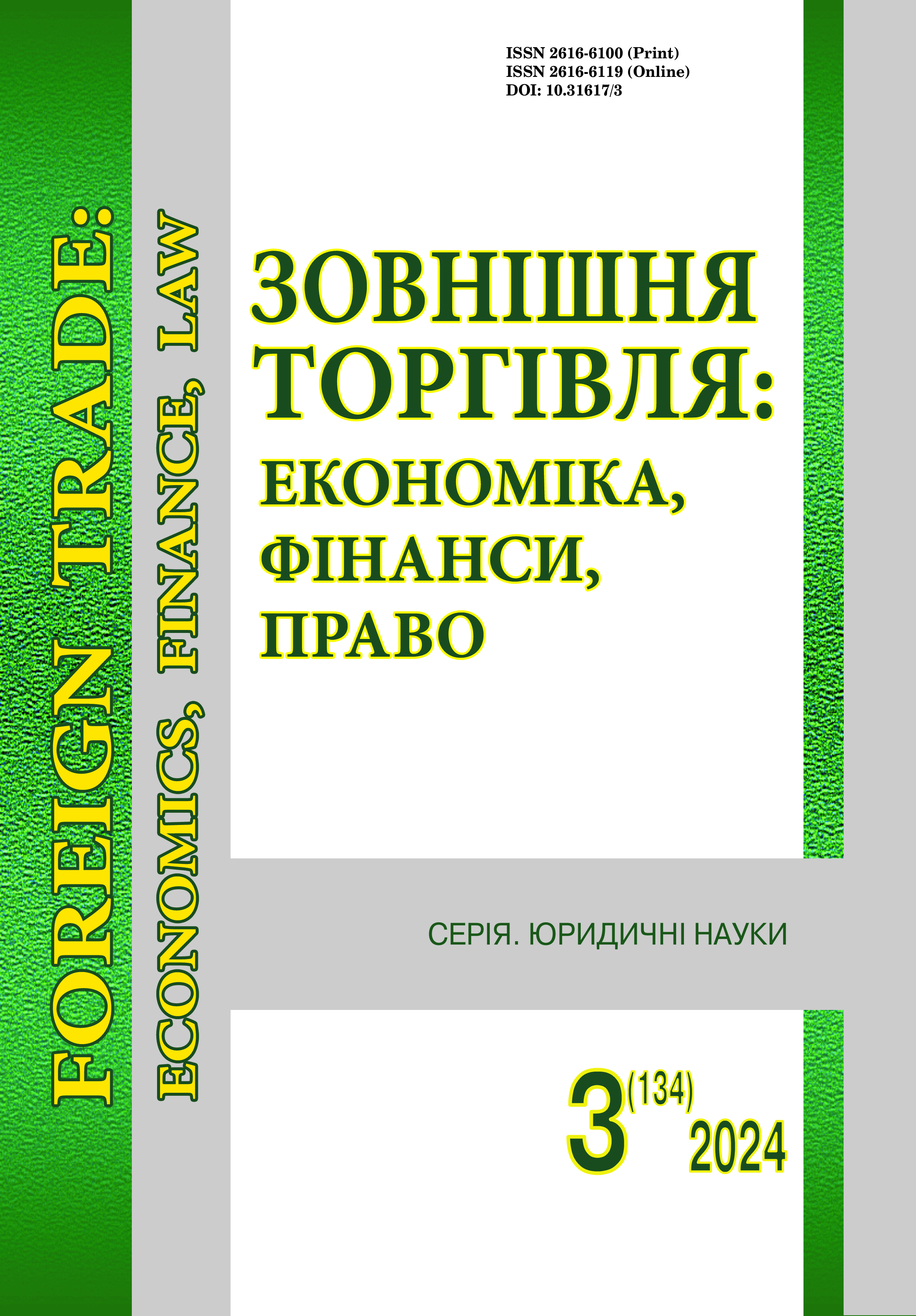International justice against war criminals
DOI:
https://doi.org/10.31617/3.2024(134)01Keywords:
aggression, war crimes, genocide, international justice, International Criminal Court, special international tribunal.Abstract
The main prerequisites for the emergence and functioning of international criminal tribunals, Ukraineʼs cooperation with the International Criminal Court and its institutions are highlighted. The purpose of the article is to substantiate the proposal regarding the need to create a special international tribunal to investigate and prosecute war criminals for aggression against Ukraine, taking into account the current norms of national and international law. The methods used are: dialectical, historical, systemic analysis and synthesis, formal-logical, hermeneutic. Russian aggression against Ukraine created the largest conflict in Europe since the Second World War, causing many war crimes, genocide, crimes against humanity. The world community should react to this in a similar way to the holding of international criminal tribunals in Nuremberg, Tokyo, Yugoslavia and Rwanda, which created international precedents for the conviction of war criminals and helped to overcome the personal immunity of the highest state and military officials guilty of crimes of aggression. Consideration of the legal aspects of Ukraine's interaction with the International Criminal Court proved the need for our state to ratify the Rome Statute for full participation in the Courtʼs proceedings. It was emphasized that the establishment of general peace and justice regarding the punishment of war criminals depends both on Ukraine and on the active actions of the West and the European Parliament.
References
Blazhivska, O. (2023). About the role and place of the international criminal tribunal. Ukrinform. https://www.ukrinform.ua/rubric-world/3760864-svit-mae-obednatisa-i-stvoriti-tribunal-dla-pokaranna-krainiagresora.html
Bondarenko, N. (2011). Legal results of the Nuremberg trial and their modern significance. Foreign trade: economy, finance, law, (6), 81-85.
Kolchynska, K. (2023). Crimes against humanity in Ukraine: the difference from war crimes and the issue of prosecution. https://golaw.ua/ua/insights/publication/zlochini-proti-lyudyanosti-v-ukrayini-vidminnist-vid-voyennih-zlochiniv-ta-problematika-prityagnennya-do-vidpovidalnosti/
Murachov, R. (2023). Peculiarities of interaction between Ukraine and the International Criminal Court: legal aspects. Analytical and comparative jurisprudence, (5), 654-658. https://doi.org/10.24144/2788-6018.2023.05.115 DOI: https://doi.org/10.24144/2788-6018.2023.05.115
Nalivayko, L. R., & Stepanenko, K. V. (2022). International justice. Dnipro. DDUVS. 304 p.
Warrant for Putinʼs arrest: 32 countries are ready to implement the decision of the International Criminal Court. (2023). https://sprotyv.info/news/order-na-aresht-putina-rishennya-mus-gotovi-vikonati-vzhe-32-kra%D1%97ni
Law of Ukraine "On amendments to the Criminal Procedure Code of Ukraine and other legislative acts of Ukraine regarding cooperation with the International Criminal Court" No. 2236-IX. (2022, May 03). https://zakon.rada.gov.ua/laws/show/2236-20#Text
Rome Statute of the International Criminal Court dated (1998, 17 June). http://zakon4.rada.gov.ua/laws/show/995_588
Smirnov, M. (2023). Conceptual issues of ratification of the Rome Statute of the International Criminal Court and Ukraineʼs cooperation with the International Criminal Court in the context of Russiaʼs military aggression against Ukraine. Legal Scientific Electronic Journal, (1), 542-546. https://doi.org/10.32782/2524-0374/2023-1/125 DOI: https://doi.org/10.32782/2524-0374/2023-1/125
Smirnov, M. (2023). Peculiarities of Ukraineʼs cooperation with the International Criminal Court in the context of Russiaʼs military aggression against Ukraine. Law and Society, (1), 395-402. https://doi.org/10.32842/2078-3736/2023.1.56 DOI: https://doi.org/10.32842/2078-3736/2023.1.56
Shymkevich, K. (2023). Ukraine's cooperation with the International Criminal Court: what can international justice do? https://mil.in.ua/uk/blogs/spivpratsya-ukrayiny-z-mks-shho-mozhe-mizhnarodne-pravosuddya
Additional Files
Published
How to Cite
Issue
Section
License

This work is licensed under a Creative Commons Attribution 4.0 International License.
This work is licensed under a Creative Commons Attribution 4.0 International (CC BY 4.0)







